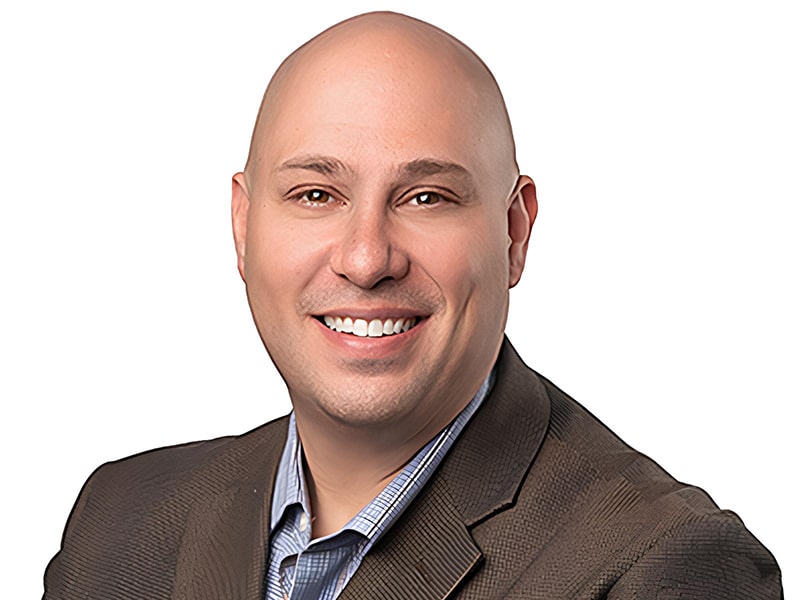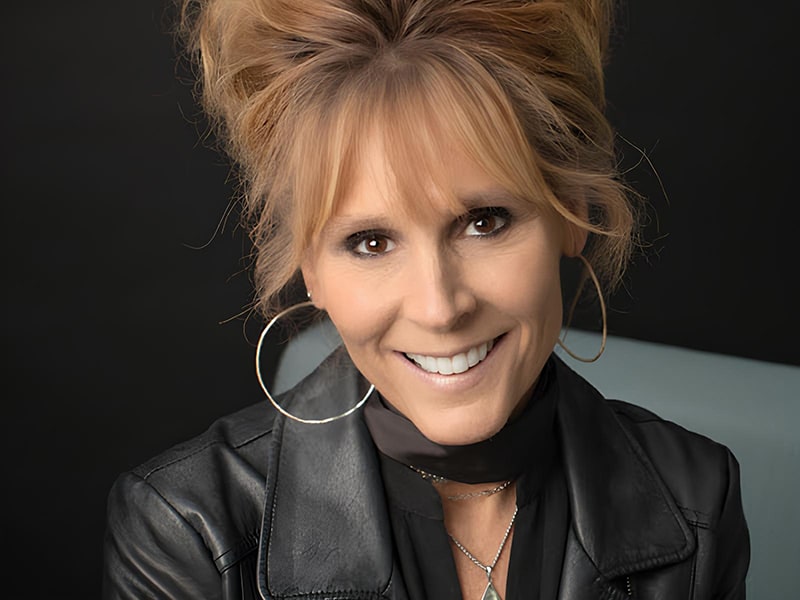Holding the Line
From Staffing Solutions to Conflict Resolution,
No One Does it Better in Times of Crisis
In times of crisis, when the margin for error is slim and business continuity hangs in the balance, Huffmaster stands as a proven partner. Founded in 1963 and headquartered in Michigan, Huffmaster has long been synonymous with contingency solutions, delivering security, strike management, healthcare staffing, and consulting services with the foresight and precision that clients across North America have come to rely on.
For more than six decades, Huffmaster has operated with one clear mission: to provide seamless support when companies face their most pressing labor-related and security challenges. From early beginnings in traditional private security to leading complex nationwide labor disruptions, Huffmaster’s trajectory reflects a deep understanding of how to help clients prepare for and respond to the unpredictable.
Rising to Meet Labor Unrest
By the late 1970s, labor unrest erupted across Detroit, with strikes turning physically destructive. “Union employees were becoming violent or destructive and hurting the property,” Trevor Fandale, President, recalls. “Local companies were looking for security companies to come in and provide security officers to help keep the building safe during the labor dispute.”
Huffmaster answered that call, often fielding five or six hundred officers at a time, not just locally but across the United States, handling logistics before cell phones or online booking existed. “During a very hectic time, they were able to pull it off and found that they had a niche and started going after more strike work and quickly grew across the country doing security specifically during labor disputes,” Fandale explains.
Expansion Through Demand
As Huffmaster’s deployment capabilities grew, clients began requesting additional services. In the early 1980s, hospitals, schools, and manufacturing facilities, which were unable to pause operations during strikes, inquired whether Huffmaster could provide emergency replacement workers. “That crisis staffing capability launched us into a new business model, on-demand, nationwide response,” Fandale says.
Huffmaster embraced this expansion, moving beyond just providing security. They now offered strike replacement workers across industries where continuity was critical. “We began to develop into that and grow that business,” he adds.
Disaster Response
The 1990s brought another evolution. As natural disasters intensified, companies needed boots on the ground quickly, people with the necessary skills and security clearances to restore operations, protect assets, and rebuild infrastructure. Huffmaster was ready.

Their largest disaster deployment came after Hurricane Katrina. “We even rented a cruise ship for up to nine months, holding security officers and staffers who were helping rebuild New Orleans after Katrina,” Fandale recounts. It was a milestone that confirmed the company’s logistical prowess and its capacity to operate on a massive scale during times of national crisis.
A Workforce on Standby
Today, Huffmaster’s business model is anchored in four areas: traditional security, strike staffing, crisis deployment, and non-strike staffing for operational recovery. “We still offer our traditional security. We offer replacement workers during labor disputes. We also offer crisis workers, and we provide staffing on a non-strike basis,” Fandale explains.
What makes the model unique is Huffmaster’s use of a sequestered workforce, which involves bringing in skilled professionals from outside the impacted region, housing them on-site, and operating 24/7 until the job is complete. “They’re focused, just ready to work,” Fandale says. “We typically work longer hours and are bringing in people who are seasoned professionals.”
Response to Readiness
Huffmaster’s evolution has led the company to recognize that rapid deployment alone is no longer enough. “Staffing is not becoming easier to do,” Fandale warns. “Every day is becoming more of a challenge where we used to be able to fill a job in a matter of days. It can now take months.”

That’s why Huffmaster is investing in long-term partnerships with clients, building continuity plans before crises hit. “We’re tailoring our approach based on our customers to try and become longer-term partners with them,” Fandale says. “If we can make them a stronger partner with us, then we’ll have assets available to them when they need them.”
This future-facing strategy includes entry into home healthcare, an area where demand is expected to grow by 400 percent in just a few years. Huffmaster is developing a training center to prepare workers for roles in hospitals and at home. “We’re no longer waiting to hire trained people,” Fandale notes. “We’re training people ourselves and getting them prepared for the workforce.”
The Protective Services Group
For Huffmaster’s Protective Services Group, led by President and Chief Security Officer Scott Gane, security isn’t just boots on the ground. “My department involves man guarding, virtual monitoring, technology solutions, consulting, and some training,” says Gane. “A large part of what I do personally is the upfront consulting.”
That consulting encompasses compliance with post-9/11 standards, such as the Maritime Security Act and the Chemical Facility Anti-Terrorism Standards. “We’re actively involved in weekly briefings with the FBI and DHS,” Gane adds. “So, I have my ear to the ground on what’s trending and what we have to do.”
The group’s hybrid security approach integrates manned guards with high-tech surveillance, including access control and remote monitoring. “We can be eyes and ears for the whole facility, instead of just a single view that a security officer may have,” Gane says. This model enables leaner, more responsive security coverage without compromising awareness or safety.
New Tactics, Old Animosities
Fandale also speaks candidly about how the nature of labor disputes has changed. “They’re not nearly as bad as they were before, but now they are much more calculated,” he observes. “What we’ve seen in the last two years is an uptick of small amounts of violence or targeted violence.”
One alarming trend involves bringing infants to the picket line. “They’re trying to endanger the children with picket line crossings,” Fandale says. “It started happening across the country. We’ve seen it as a new tactic.”
Though picket-line violence is less overt than in decades past, Fandale insists that union influence is stronger than ever. “Teamsters, by far, is probably the most well-known and is causing the biggest number of issues and concerns. SEIU is probably the second largest,” he explains. “Both of them have been on major campaigns to organize new organizations over the last five years.”

This wave of union activism has also expanded into unexpected sectors. Traditionally, strong unions have been most visible in public service roles such as policing and teaching, particularly in Canada, where teacher unions wield significant influence.
However, in recent years, Huffmaster has observed Teamsters organizing within healthcare settings, a shift that would have seemed improbable a decade ago. “We’ve seen Teamsters inside of hospitals,” Fandale says. “Some nurses and other healthcare roles are aligning with unions that used to be associated with trucking and logistics. It’s a striking example of how cross-sector union influence has grown.”
Branding by Reputation
While most businesses rely on advertising, Huffmaster’s brand is built on reputation. “It’s our reputation that precedes us,” says Anne Young, Vice President of Sales and Marketing. “We have such a track record in this area that we’ve got well over 70 percent of Fortune 500, Fortune 1000, and even Fortune 50 companies that do business with us.”
Young joined the company two years ago to reshape the sales and marketing approach, moving from last-minute outreach to strategic relationship-building. “We’re saying it’s going to take us a year to get ready, so let’s start talking ahead of time,” she says. “We’re able to take an organization from prep to implementation to deployment, if necessary.”
Strikes, Safety, and Strategy
Strikes come with a slew of liability and insurance challenges. Fandale notes that health coverage for striking workers often depends on whether they worked the first few days of the month. “Typically, they’ll be dropped off of their health insurance” if a strike extends into the next month, he says. Union dues determine whether any strike benefits apply; some cover healthcare, while others do not.

For Huffmaster, ensuring their operations during strikes is a specialized field. “There’s technically only one other company in the country who is allowed to do what we do,” Fandale notes, referring to vehicle crossings at picket lines. Huffmaster maintains rigorous safety protocols, and most field personnel are former military or law enforcement personnel, trained to de-escalate tense situations. “We don’t get claims that often,” Fandale adds. “But we do have protections. Clients have to indemnify us.”
Prepared for What’s Next
The following 18 to 24 months hold major plans for Huffmaster. “We are in the process of opening up a home healthcare division, starting in one region specifically, and then we’ll be expanding across the country,” Fandale shares. They are also targeting more industrial clients with high-skill needs and are increasing their presence in government contracts—both disaster-related and for general physical security.
Cybersecurity is also an increasing concern. “We bring on our technology solutions group and we look at everything,” Gane says. “They put all this effort into the tightest firewall with the latest encryption, but a simple pen knife can open the closet to the computer room.” For Gane, security is never just digital or physical; it’s both.

As Huffmaster celebrates more than six decades in business, its leadership is laser-focused on preparation, trust, and resilience. The company is investing in long-term relationships, scalable staffing, early training, and innovative technology, not to chase after emergencies but to be ready before they unfold.
“We don’t just fill gaps,” Fandale says. “We build systems, train people, and prepare for what’s next. Because in a crisis, every minute counts, and we’re already on the clock.”
AT A GLANCE
Who: Huffmaster
What: A staffing and security firm specializing in contingency and strike-related personnel solutions.
Where: Headquartered in Clawson, Michigan.
Website: www.huffmaster.com
PREFERRED VENDORS/PARTNERS

UHY’s national team of staffing industry specialists is here to meet those needs, providing advanced solutions for digital transformation, cybersecurity, mergers and acquisitions, and state and local tax issues. With UHY, you’re prepared to navigate the complexities of the modern staffing landscape. We prioritize client relationships by applying our specialized knowledge and collective intelligence to turn your potential into reality. We seek to create opportunities to help your business grow, manage, transition, or transform.
UHY: www.uhy-us.com


